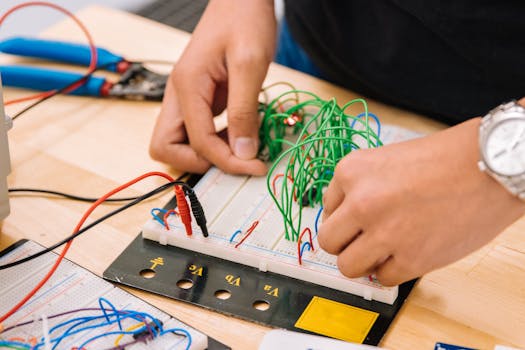You can do a foundation degree or degree in electrical or electronic engineering. You may also be able to get into this career with a degree in:
- electromechanical engineering
- building services engineering
- applied physics
- aeronautical engineering
- mechatronics
Look out for courses that offer work experience opportunities during your studies, such as:
- internships
- sandwich course placements
- Easter and summer vacation schemes
These can give you an advantage when applying for jobs or graduate training schemes. Your university careers service can help you to find opportunities.
Entry requirements
You'll usually need:
- 2 or 3 A levels, or equivalent, including maths and a science for a degree


